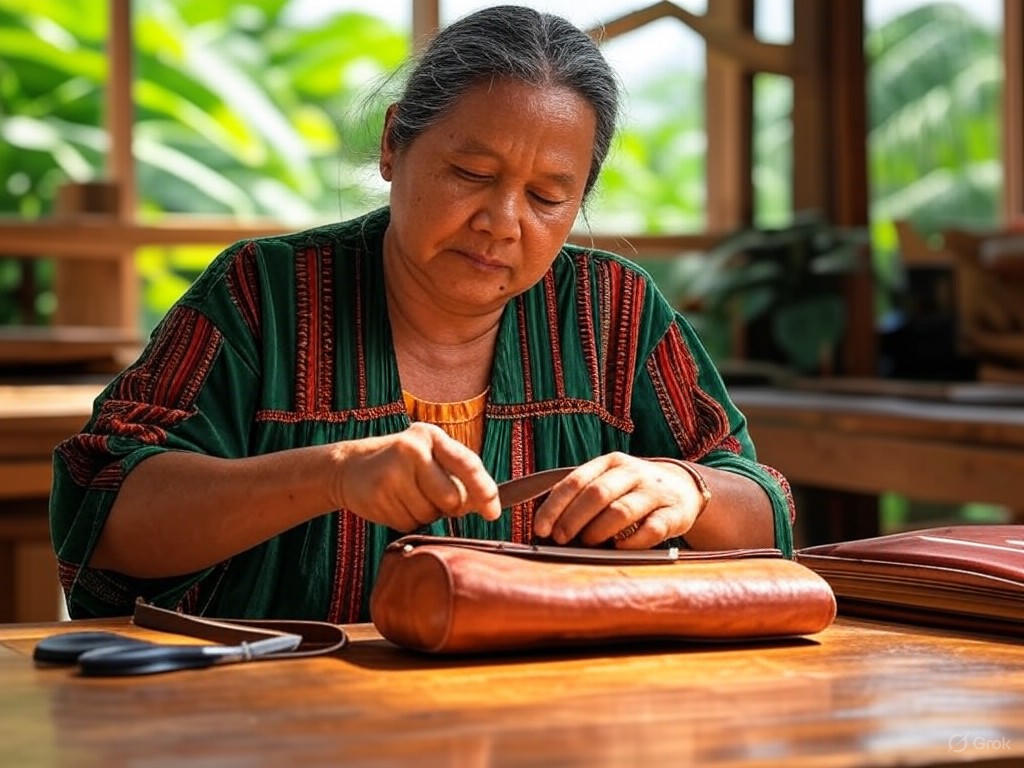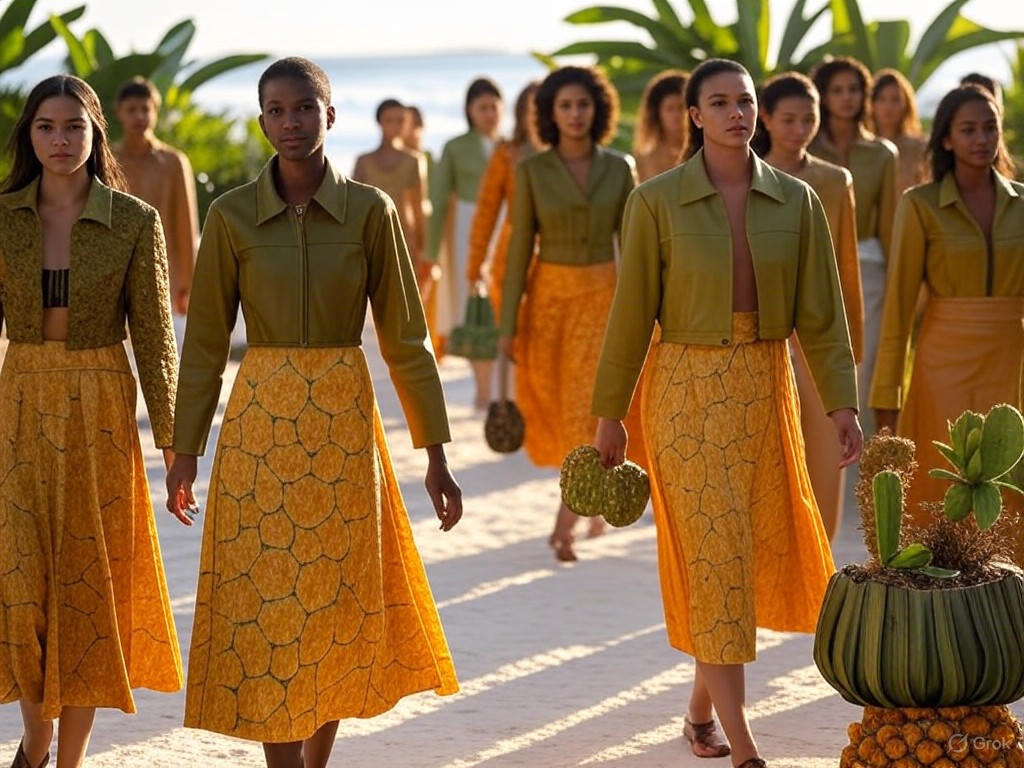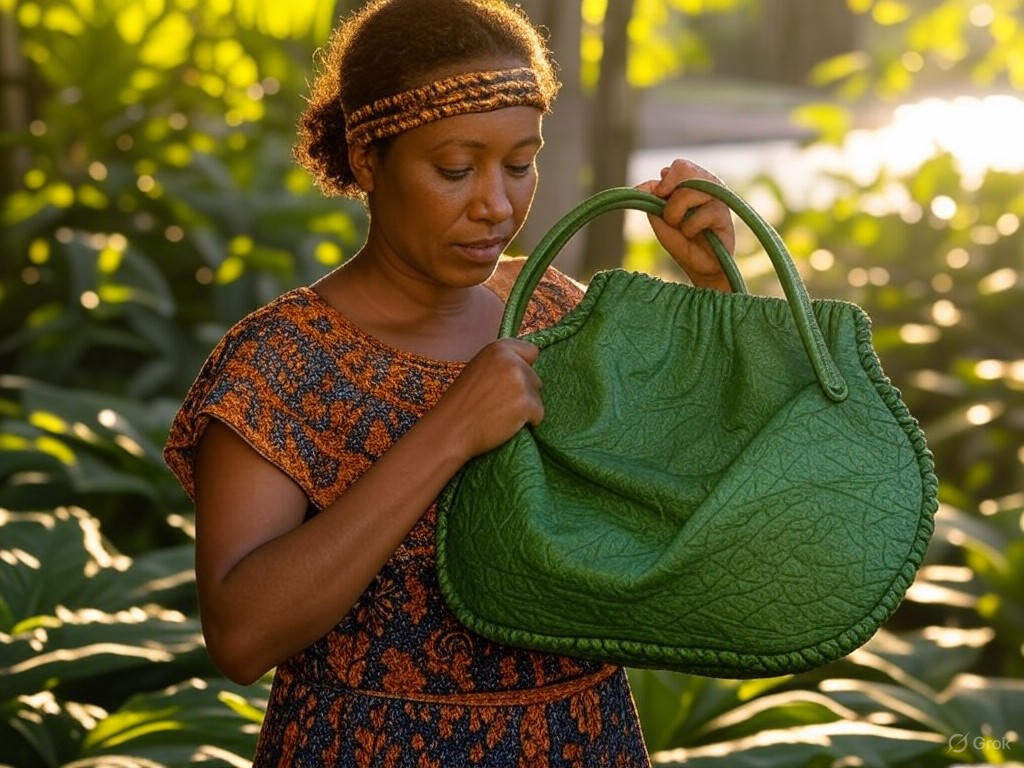Vegan Leather in Brazil: Eco-Friendly Fashion
In the vibrant tapestry of global fashion, where creativity meets commerce, Brazil emerges as a beacon of innovation. Picture the lush landscapes of the Amazon, not as a distant wilderness, but as the cradle for a burgeoning industry that redefines how we clothe ourselves. Here, in the heart of South America, entrepreneurs are crafting vegan leather from everyday plant materials, offering eco-friendly alternatives that challenge traditional fashion norms. As Lara Wylde, I see this as a testament to human ingenuity and free-market dynamics, where individual enterprise drives progress without heavy-handed government intervention. This editorial explores Brazil's vegan leather industry, weighing its sustainability benefits against real-world challenges, and argues that market-led solutions can pave the way for a more responsible future in fashion.
The Ascendancy of Vegan Leather in Brazil
Brazil's fashion sector has long been a powerhouse, blending cultural heritage with economic opportunity. Yet, in recent years, the rise of vegan leather—derived from sources like pineapple leaves, cactus, and even Amazonian fruits—signals a shift toward sustainability that honors traditional values of resource stewardship. Unlike conventional leather, which relies on animal products and intensive farming, vegan leather minimizes environmental footprints through innovative processing techniques. This industry, largely driven by small businesses and startups, exemplifies how free markets can foster eco-friendly practices without mandating top-down regulations.
Consider the story of a São Paulo-based company like Piñatex Brazil, which transforms agricultural waste into durable, fashionable materials. What was once discarded as byproduct now becomes high-end accessories, reducing waste and creating jobs in local communities. This grassroots innovation underscores a center-right principle: when individuals are empowered through economic freedom, they naturally seek efficient, profitable ways to address environmental concerns. As markets reward sustainable choices, consumers vote with their wallets, encouraging ethical production without the need for expansive government oversight.
To illustrate,  depicts an artisan in a bustling workshop, deftly shaping a clutch from plant-based leather. This image captures the hands-on ingenuity of Brazilian craftspeople, turning sustainable materials into timeless fashion pieces that blend tradition with modern innovation.
depicts an artisan in a bustling workshop, deftly shaping a clutch from plant-based leather. This image captures the hands-on ingenuity of Brazilian craftspeople, turning sustainable materials into timeless fashion pieces that blend tradition with modern innovation.
According to a Wall Street Journal analysis, the vegan leather market in Brazil has grown by over 20% annually since 2018, fueled by export opportunities and domestic demand. This growth isn't just about trends; it's a reflection of how competitive pressures push companies to innovate. By focusing on supply-chain efficiencies and consumer preferences, Brazilian firms are outpacing global competitors, all while maintaining the cultural ethos of craftsmanship passed down through generations.
Analyzing the Sustainability and Economic Impacts
At its core, sustainability in fashion means balancing environmental stewardship with economic viability—a principle that aligns with traditional values of prudent resource management. Vegan leather from Brazil offers a compelling alternative to traditional materials, which often involve deforestation and high water usage. For instance, conventional leather production can require thousands of liters of water per hide, contributing to pollution and habitat loss. In contrast, vegan leather processes, such as those using ananás (pineapple fibers), are far more resource-efficient, requiring less land and energy while supporting crop diversification for farmers according to a report from FashionUnited.
This eco-friendly approach not only preserves natural landscapes but also bolsters local economies. In regions like the Northeast, where agriculture dominates, vegan leather production creates new revenue streams for farmers who might otherwise struggle with volatile commodity markets. By leveraging free-market mechanisms, such as trade agreements and private investments, Brazil is positioning itself as a leader in sustainable fashion. Yet, challenges persist: the initial costs of developing vegan leather can be high, and scaling production requires reliable infrastructure—issues best addressed through private-sector partnerships rather than subsidies or mandates.
Evidence from authoritative sources reinforces this narrative. A study by the World Resources Institute highlights that plant-based leathers reduce carbon emissions by up to 80% compared to animal-derived options, making them a smart choice for environmentally conscious consumers. Similarly, an IEEE Spectrum article on green manufacturing notes how Brazilian startups are adopting advanced technologies, like biofabrication, to enhance product durability without relying on government grants. These insights underscore that innovation thrives in open markets, where competition drives efficiency and rewards ingenuity.
Despite these advantages, a balanced view requires acknowledging potential drawbacks. Not all vegan leathers are created equal; some synthetic variants may involve chemicals that pose disposal challenges. Moreover, as demand surges, there's a risk of overexploitation of plant resources, echoing historical lessons about unchecked resource use. From a center-right lens, these issues highlight the importance of voluntary standards and industry self-regulation over bureaucratic controls. Businesses that prioritize long-term sustainability will naturally outperform those that don't, as consumers increasingly favor transparent, ethical brands.
Free-Market Solutions: A Path Forward
In advocating for sustainable fashion, we must champion free-market solutions that encourage innovation while respecting traditional values. Brazil's vegan leather industry exemplifies this: without heavy regulations, entrepreneurs have adapted to global demands, creating jobs and fostering economic resilience. Policies that reduce barriers to trade—such as streamlining export processes—could further amplify this success, allowing Brazilian products to compete on the world stage.
Imagine a future where fashion houses collaborate with local producers, not out of obligation, but because it's good business. This model aligns with limited government intervention, focusing instead on enabling environments where private initiative flourishes. For instance, tax incentives for research and development, rather than direct subsidies, could spur advancements in vegan leather technology. As an in-depth piece from The Economist suggests, such approaches have already helped Brazil's industry grow, proving that market forces can deliver sustainable outcomes.
To visualize this progress,  offers a glimpse of a eco-friendly fashion event in Rio de Janeiro. Attendees admire garments made from Brazilian vegan leather, symbolizing how market-driven innovation is reshaping the global fashion landscape.
offers a glimpse of a eco-friendly fashion event in Rio de Janeiro. Attendees admire garments made from Brazilian vegan leather, symbolizing how market-driven innovation is reshaping the global fashion landscape.
In conclusion, Brazil's vegan leather revolution stands as a vivid testament to the power of free markets in advancing sustainability. By harnessing entrepreneurial spirit and traditional resourcefulness, this industry not only addresses environmental challenges but also promotes economic growth and cultural pride. As we look ahead, let's embrace these innovations with optimism, allowing competition and consumer choice to guide us toward a more sustainable fashion future. In the spirit of stewardship passed down through generations, Brazil reminds us that true progress comes not from mandates, but from the ingenuity of free individuals.

